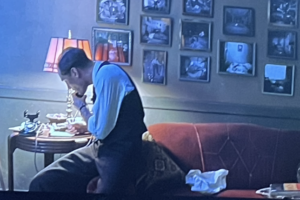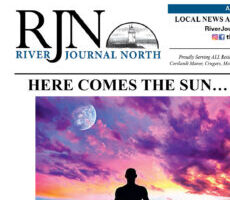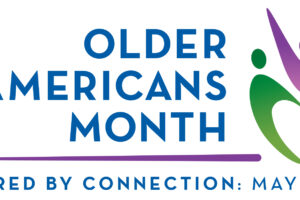Is John McCain too old to be president? Is Barack Obama too young? Does it matter whether he ever practiced Islam? If Hillary Clinton ends up in the Oval Office how much will the country see of Bill?
Was it Guiliani’s reputation for abrasiveness and bullying that lost him all those primaries? Is the country ready for a biracial president? Or a woman? Were voters concerned about Edwards’ terminally ill wife and how that might distract him from the presidency? Does it matter if a president has been divorced?
This year’s national election promises to be one of the most interesting to date. For the first time we have a female and a minority who actually have a good shot at ending up in the White House, unlike Jesse Jackson’s previous bids for president, or Mondale’s choice of Geraldine Ferraro for a running mate. For nearly thirty years Reagan has held the record as the oldest president, taking office just shy of his 70th birthday, but now we have McCain, who is older, looking very much like the
front-runner. Two of the most popular presidents, Kennedy and Teddy Roosevelt, were also the youngest — Kennedy was the youngest elected, but Roosevelt was the youngest inaugurated, as he was not elected to his first term, but came to office following the death of McKinley. But now there is talk that Obama’s youth translates to inexperience, and he is older than both of them were when they took office! After four terms of presidents who either avoided military service or possibly had strings pulled to avoid more dangerous duty, does McCain’s military service (as well as his son’s and father’s) make him seem like a better Commander in Chief during this difficult time? Or do we focus on his famous temper and blame it on the trauma of seven years as a POW, wondering if he can be stoic and stable enough to run the country?
All of these questions have been popping up in the media as the candidates are taking to the streets and fighting it out in the primaries. Sadly, their stand on the issues seems to be secondary to questions about demographics and spouses. This does not surprise me, since even as information becomes more readily available and easier to confirm, the sound bite has become shorter and presentation is now more important than substance. The term "cult of personality" has even been thrown around lately in describing the way the candidates are trying to present themselves. I firmly believe that one reason Kerry lost in 2004 is because on Election Day many of us still didn’t know where he stood on the issues. I know I didn’t. Had he been more charismatic, he may have had a chance. In the modern election charisma trumps clarity.
I vote because I feel it is my civic duty. I don’t think I have a right to complain if I haven’t pulled that lever. I may vote third party, possibly casting a vote for someone who doesn’t stand a chance, but if that candidate takes a stand that I agree with, I’ll support him or her. Of course with New York not being a swing state, I can afford to do this, but ideally shouldn’t we all be voting for the candidate that we feel is "best" not the one we feel "can win?" My father and I used to talk about politics frequently. We agreed on many issues, except when we didn’t. I used to get on his case because despite his interest in the elections, he actually didn’t vote for the last two decades of his life. His rationale: Nixon disappointed him, so he decided never to vote again. Not exactly logical, but then again, how many of us really vote for logical reasons?
The difficulty with choosing a candidate applies to local elections as well, maybe even more so. At least in the big elections there is plenty of press coverage. If you don’t know who the national players are at this point, you must be Rip van Winkle, but it’s easy to be clueless when it comes to the elections in your own backyard. Our local politicians are not making the cover of the New York Times, nor can we find them on You Tube. No pop stars are making videos to support the trustee of a small suburban town, nor is Newsweek running a feature on the most exciting mayors of the Hudson Valley. But, again, many of us feel we are obliged to vote, so we do, often feeling confused, or even guilty, because we don’t know all the issues we are voting for. With no cult of personality in our backyard, how exactly does each candidate get seen and heard? Do we go for a familiar name? Vote on one particular issue? Ask our friends whom they are voting for? Read the paper? Or go for the incumbent since it "ain’t broke" that badly?
Besides, it’s difficult to know what to believe in the media. Today there are many ways to get the real information, through websites, reading up on candidates’ records regarding how they vote and what they support, but few people actually go to those sources, preferring instead to focus on one or two issues and voting accordingly. Is that an ethical, responsible way to do our civic duty? I’m not sure. When so much of what we hear about a candidate may be what the other candidate wants us to hear how can we make that choice? If Clinton’s team really did make public a photo of Obama in a turban, was it ethical? Was it racist? What does it say if they felt that it would swing voters to see a candidate in a turban. (He was visiting Kenya and wearing traditional garb for some type of activity, and surely a photo-op). Would Clinton be alienating Muslim or Sikh voters if it turns out that she was trying to imply that to wear a turban is a "bad" thing, obviously grouping all turban-wearers with terrorists, the enemy? In a local election is it ethical to paint someone as guilty by association if he or she has been known to side with a particular local business or individual? Talk about wagging the dog!
Several years ago I read a book called See How They Run, which used the 1988 election as an example of a turning point in American politics and its relationship with the media. This was during the time that the press tried to paint Dan Quayle as a bumbling idiot who couldn’t spell potato. For the record, his error was in not realizing that the word was printed incorrectly-by a teacher-on the card he was reading from, he actually did know how to spell potato. Yes, he often made gaffes when speaking, but he was known in Congress for speaking off-the-cuff rather than preparing statements. Anyone who does this is going to slip up, and if we catch it on film and play it over and over, it’s going to get attention. Gary Hart was a contender in that election, but as soon as evidence of an extramarital affair came to light he was out of the race in 24 hours. Four years later Bill Clinton sailed to victory despite what seemed like constant allegations of his sexual misdeeds. One photo of Dukakis looking silly in a helmet and driving a tank seemed to be all it took to ensure a Republican landslide (Bush won 40 states). It was a very interesting take on how the media can make or break an election for someone. This week we have a photo of Barack Obama wearing a turban, and this morning my AOL headlines quote Mr. Obama as saying, "I have never been a Muslim." His wife is being chastised as un-American for saying that for "the first time" she is "proud" of her country. Earlier there was focus on the insensitive way that Guiliani approached the end of his marriage to Donna Hanover. Are these the most important issues in this election? Was Donna Rice? Or a spelling bee? What are the important issues in our backyard? Taxes? Traffic? Crime?
It is not that hard, nor does it take a lot of time, to get to some of the issues and do your civic duty in a more informed, ethical way. People have died, and in some places still do, for the right to vote. The fall of Castro and the independence of Kosovo remind us that not everyone takes the right to vote for granted. Simply using a search engine you can find candidates’ records and decide who is the best for the job. Some websites allow you to compare the candidates and see whose views are closest to your own. And if it leads to a third-party candidate, it is up to you to decide how to cast your vote. As for me, a Teddy Roosevelt fan, I think I’ll resurrect the Bullmoose party and start my campaign for office in a small river town. I wonder if my name would fit on a campaign button.






